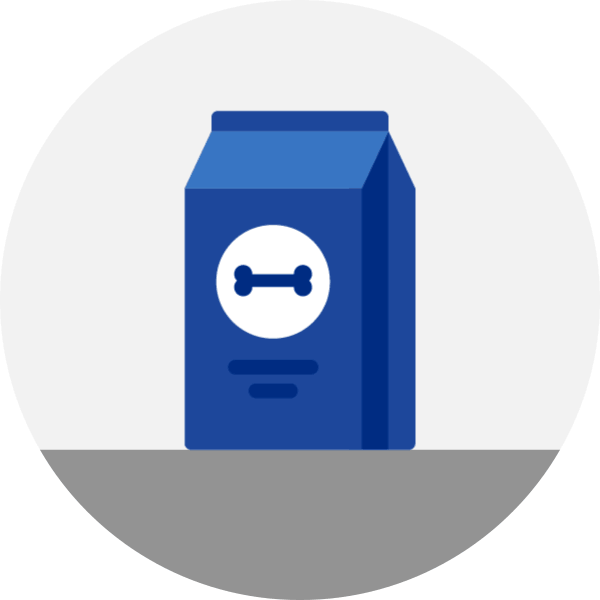
The good and not-so-good about homemade diets
If you’re not a fan of commercially prepared pet food, concerns about ingredients, quality, or processing are probably making you second-guess what you’re putting in your pet’s food bowl. Preparing meals for your cat or dog at home means you always know what your pet is eating. Plus, it allows you to make conscientious decisions about natural, organic, vegetarian and vegan ingredients.
However, making sure your pet is receiving a quality home-made diet can be a very involved process. If you’re committed to making your pet’s food, we’re here to help you with veterinary advice on the right formulation to make sure your pet is getting the good stuff they need, in the right quantities, for their age, health, and breed.
$name
Homemade diets are not necessarily healthier or cheaper than commercial products, and each diet requires the help of a board-certified veterinary nutritionist to ensure the proper balance of nutrients and more.
The benefits and drawbacks of homemade diets

When homemade diets are the best answer to pet needs
Many people simply enjoy preparing a home-cooked meal for their pet and watching them savor it. However, there are specific circumstances when a home-prepared meal is definitely an advantage.

Adapting to new pet health needs
As your pet ages, or develops health issues, it can sometimes be a challenge to find a commercial pet food for their specific needs. Cooking at home — with the guidance of your vet — allows you to tweak meal plans, alter quantities and substitute ingredients.
Dealing with chronic illness or injury
If your dog or cat has a food intolerance, sensitivity, or chronic illness, you may have concerns about cross-contamination with allergens in commercial food preparation. A home-cooked meal plan ensures you have control over what goes in your pet’s food bowl.

$name
Some pets have complex medical problems, like chronic pancreatitis or chronic kidney disease, that simply cannot be accommodated with a commercial product.

The downside to homemade meals for pets
Truly balanced, nutritionally sufficient home-prepared diets require time, effort and expense. Unlike commercial food manufacturers, your kitchen probably doesn’t have the same access to official testing methods that confirm you’re providing the right nutrients, in the right quantities.
It’s easy for homemade diets to fall short of providing all the essential nutrients that pets need on a daily basis. That’s why we always recommend having your pet’s diet formulated by a board-certified veterinary nutritionist, and strictly prepared using the correct ingredients and strict adherence to the recipe. Pet food needs are complex! Your veterinary team is here to help you avoid these common errors:
- Too much protein
- Not enough calories, calcium, vitamins and micro-minerals
- Unbalanced calcium-to-phosphate ratios
- Not enough calories
- Not easily digestible
- Not delicious
- Unsafe
$name
Raw meats and bones can lead to infectious disease, and even trauma to the mouth and gastrointestinal tract.

